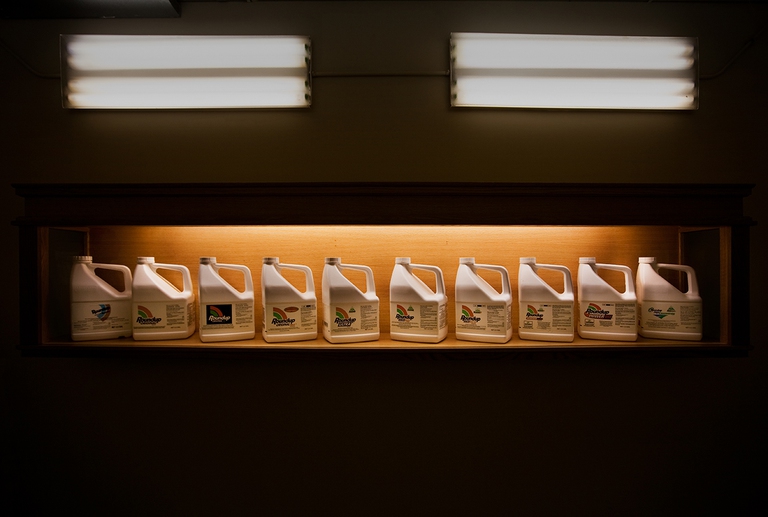
South African court dismisses a major lawsuit by 140,000 Zambian women and children against Anglo American for Kabwe lead poisoning. A setback for affected communities enduring the lasting impact of lead contamination.
Stop glyphosate before it’s too late. A group of associations has launched a petition to ask the European Commission to refuse the authorisation for using the weed killer.
On 7 March the European Commission will decide whether to renew or revoke its authorisation the use of glyphosate, one of world’s most widely used herbicides, which was rehabilitated by the multinational company Monsanto in the ‘70s. The draft document, which is currently under consideration of the European Commission, would plan to give a new 15-year lease to the weed killer, according to the British daily Guardian that viewed it.
Sign the petition to ban the use of glyphosate
All this notwithstanding the fact that the International Agency for Research on Cancer (IARC), the part of the World Health Organisation (WHO) that carried out an in-depth analysis on the scientific studies on glyphosate published so far, last year defined the weed killer as “probably carcinogenic to humans”.
To change this ending, many different associations, groups and movements gathered together to call for a ban against the herbicide not only in the name of the precautionary principle.
In Europe the Stop glyphosate campaign launched a petition called No all’erbicida cancerogeno (no to the carcinogenic weed killer) addressed to the European Commission as well as the Commissioner for Food and Health Safety Vytenis Andriukaitis and the assigned of the relative European countries. The goal is collecting 200,000 signatures by 7 March. Among other associations also Slow Food signed the petition. The founder of the association Carlo Petrini wrote in the editorial published on 26 February in the Italian daily Repubblica:
As happened with DDT in the past, a fierce debate is now raging on the harmlessness or otherwise of the substance, traces of which have been detected in fruit and vegetables, in cereal-based products, and in GM corn and soybeans used as animal feed. […]Over the next few days the European Commission will decide whether to renew or revoke its authorization of the use of glyphosate across the European countryside. To do so, it will have to collate two completely different approaches: on the one hand, that of the corporations, which argue that glyphosate has boosted harvests, ensures food for the world and saves human lives from hunger; on the other, that of civil society which pleads the cause of a ban on glyphosate and the need for agriculture to free itself from harmful substances as far as possible. We have to decide whether the future of food is to be in the hands of the chemical industry with its promises to feed the planet or of a policy that has the health of consumers and environmental welfare at heart.
Siamo anche su WhatsApp. Segui il canale ufficiale LifeGate per restare aggiornata, aggiornato sulle ultime notizie e sulle nostre attività.
![]()
Quest'opera è distribuita con Licenza Creative Commons Attribuzione - Non commerciale - Non opere derivate 4.0 Internazionale.
South African court dismisses a major lawsuit by 140,000 Zambian women and children against Anglo American for Kabwe lead poisoning. A setback for affected communities enduring the lasting impact of lead contamination.
Controversial African land deals by Blue Carbon face skepticism regarding their environmental impact and doubts about the company’s track record, raising concerns about potential divergence from authentic environmental initiatives.
Majuli, the world’s largest river island in Assam State of India is quickly disappearing into the Brahmaputra river due to soil erosion.
Food imported into the EU aren’t subject to the same production standards as European food. The introduction of mirror clauses would ensure reciprocity while also encouraging the agroecological transition.
Sikkim is a hilly State in north-east India. Surrounded by villages that attracts outsiders thanks to its soothing calmness and natural beauty.
Sikkim, one of the smallest states in India has made it mandatory for new mothers to plant saplings and protect them like their children to save environment
Chilekwa Mumba is a Zambian is an environmental activist and community organizer. He is known for having organized a successful lawsuit against UK-based mining companies.
What led to the Fukushima water release, and what are the impacts of one of the most controversial decisions of the post-nuclear disaster clean-up effort?
Nzambi Matee is a Kenyan engineer who produces sustainable low-cost construction materials made of recycled plastic waste with the aim of addressing plastic pollution and affordable housing.








